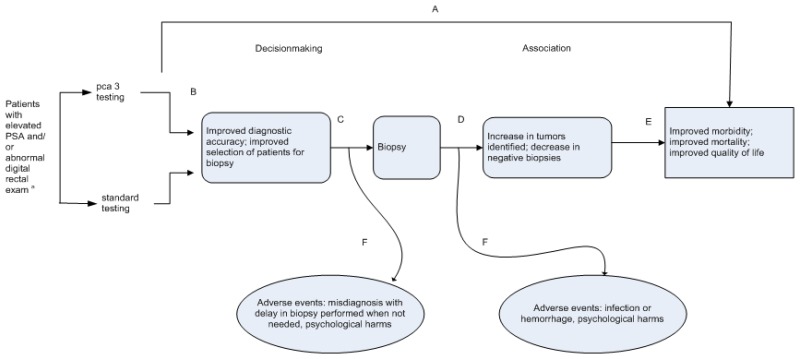From: Executive Summary

PCA3 Testing in the Diagnosis and Management of Prostate Cancer: Future Research Needs: Identification of Future Research Needs From Comparative Effectiveness Review No. 98 [Internet].
Future Research Needs Papers, No. 24.
Gutman SI, Oliansky DM, Belinson S, et al.
Rockville (MD): Agency for Healthcare Research and Quality (US); 2013 Apr.
NCBI Bookshelf. A service of the National Library of Medicine, National Institutes of Health.
